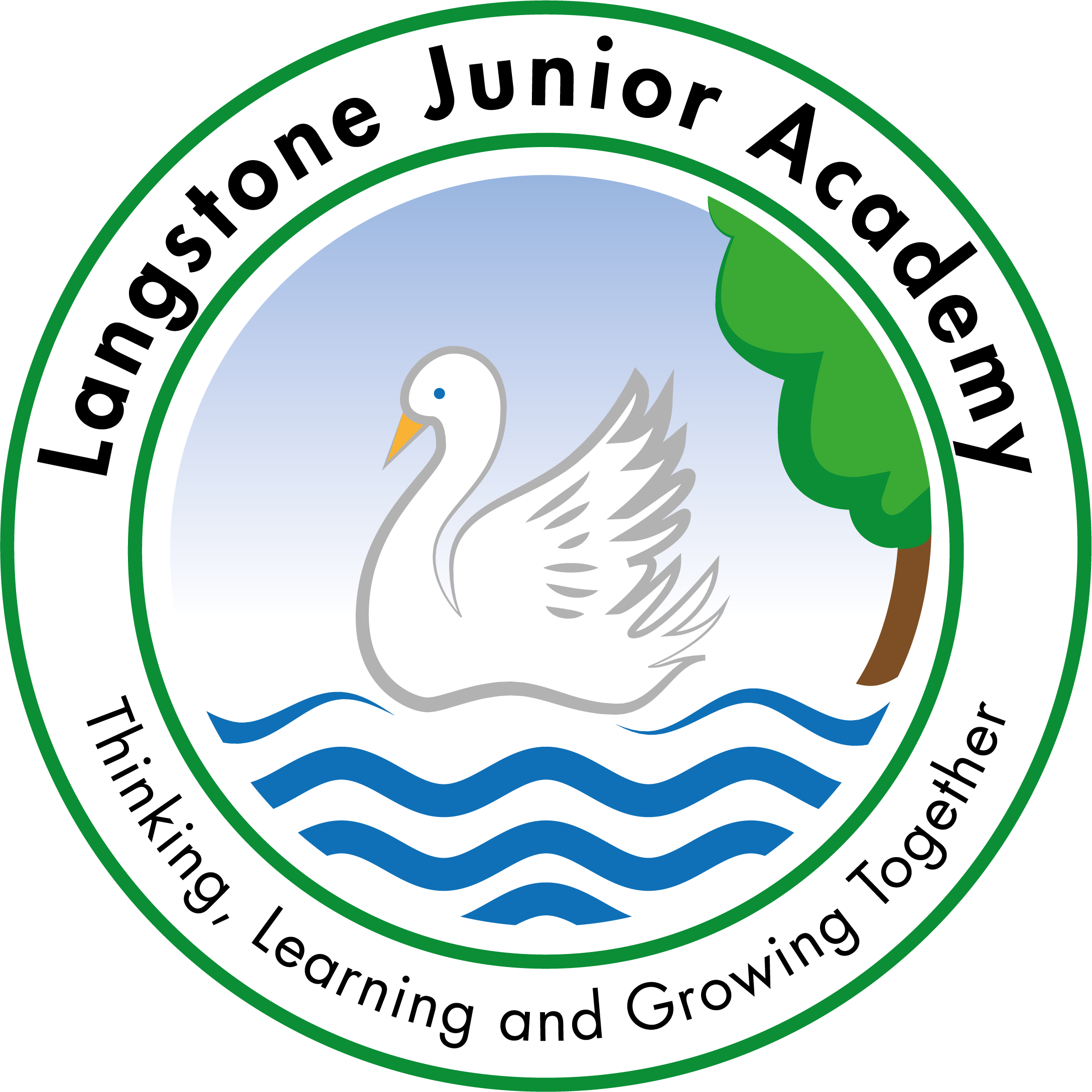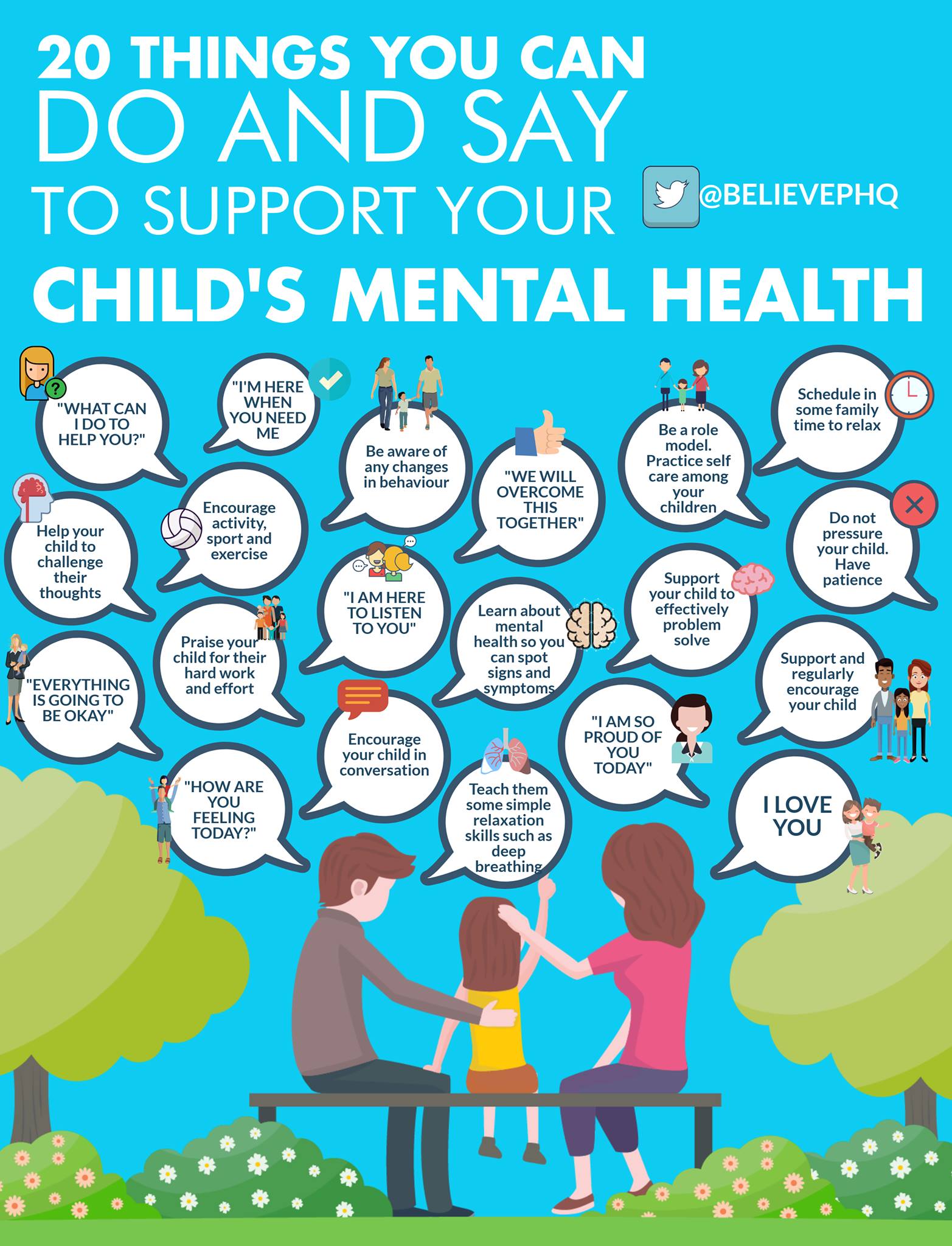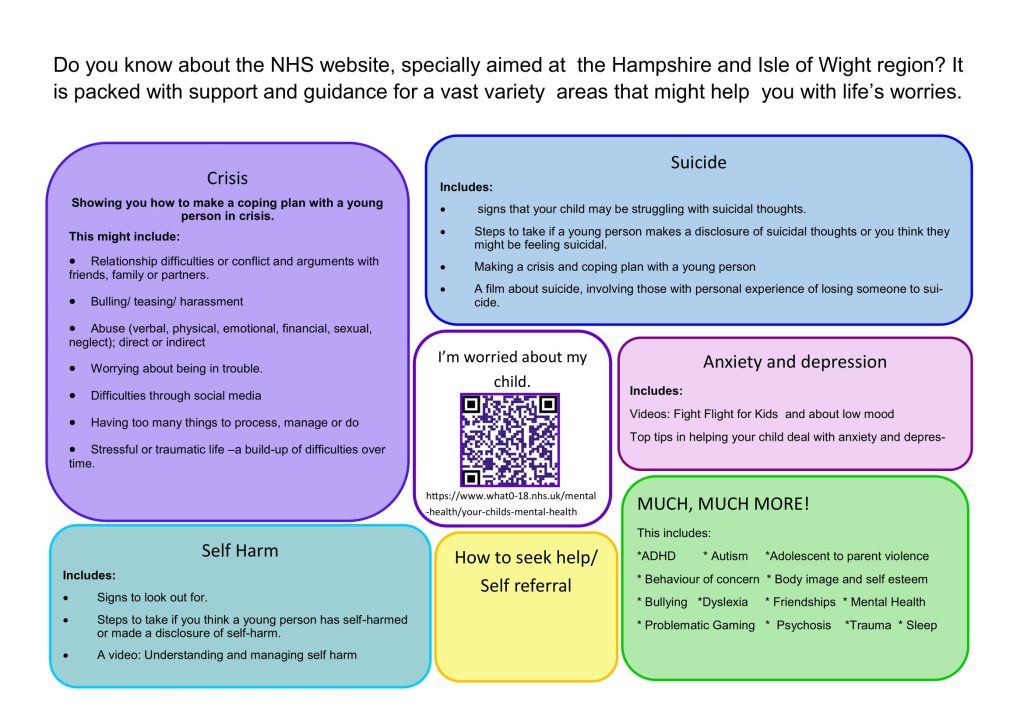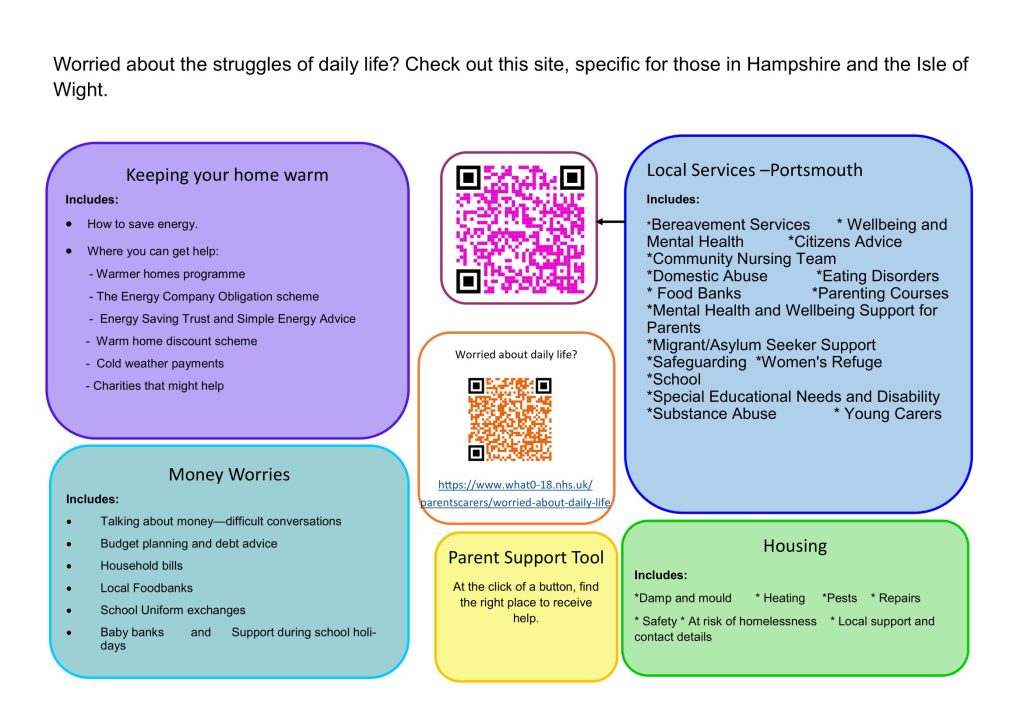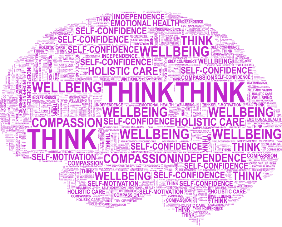
Mental Health & Wellbeing
Mental Health is a person’s condition with regard to their psychological and emotional well-being
Our Vision
The emotional health and wellbeing of all members of Langstone Junior Academy (including staff, children and parents) is fundamental to our philosophy and ethos of care and respect.
Our vision is to develop a school community through our holistic care approach where adults and children feel valued and supported and enjoy a welcoming, secure, happy and healthy environment, developing self-confidence, self-motivation, independence, compassion, tolerance and understanding of others.
Our Holistic Care approach
Our holistic care approach is built upon three areas:
Mental and physical Health
‘Mental health includes our emotional, psychological, and social well-being. It affects how we think, feel, and act. It also helps determine how we handle stress, relate to others, and make choices. Mental health is important at every stage of life, from childhood and adolescence through adulthood.’ – MentalHealth.Gov
Being physically well is not just the absence of disease. It’s also about making lifestyle choices that ensure health, avoid preventable diseases and conditions, and that allow you to live in a balanced state of body, mind, and spirit.’ – NHS
At Langstone we develop children’s mental health by:
- Creating and applying consistent approaches, policies and behaviours that support positive mental health and wellbeing (MH&WB) and resilience, which everyone understands.
- Teaching MH&WB lessons as part of the PSHE curriculum including social and emotional skills.
- Helping children to develop social relationships, support each other and seek help when they need it.
- Bringing children and adults together in a way where everyone is respected, has a chance to talk without interruption, has an opportunity to be heard, work creatively towards a shared goal, feel safe enough to express both strengths and concerns through relational circles.
- Helping children to be resilient, reflective thinkers, take risks and to manage setbacks effectively through our ‘Langstone Learner Award’.
- Helping children to deal with differences by exploring how their choices affect others through relational practice.
- Providing targeted intervention when necessary e.g. small group and individual emotional support such as loss and bereavement support etc.
- Identifying children who have MH&WB challenges and planning support to meet their needs, including working with specialist services and working in specialist groups, such as MABS (Multi- agency behaviour support), MHST (Mental Health Support Team)
- Supporting and training staff to develop their skills and knowledge and their own resilience.
- Developing an open culture where it’s normal to talk about MH&WB.
We promote a mentally healthy environment through:
- Promoting our school values and encouraging a sense of belonging.
- Promoting pupil voice and opportunities to challenge and disagree respectfully and to participate in decision-making.
- Celebrating academic and non-academic achievements.
- Providing opportunities to develop a sense of worth through taking responsibility for themselves and others.
- Teaching children the skills and strategies needed to reflect on the impact of their choices on themselves and others.
- Enabling access to appropriate support.
- Mental Health week and access to the most up to date information, initiatives and strategies as supported by mental health experts.
Workshops for parents and carers about how best to support and develop their child’s/children’s MH&WB.

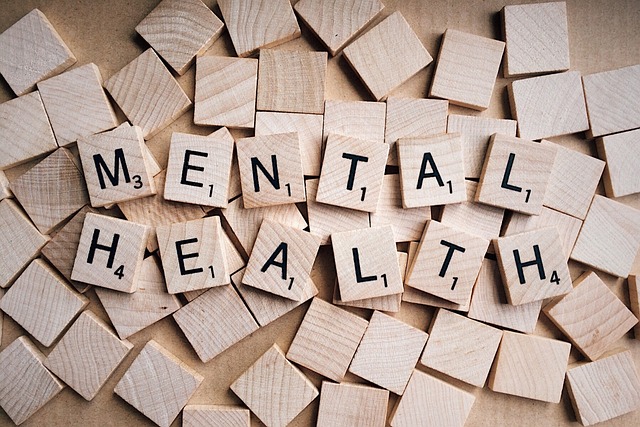

Wellbeing
Wellbeing is the state of feeling healthy and happy.
At Langstone, we ensure that children and staff are healthy and happy by:
- Providing regular opportunities, in addition to play times, for movement breaks through our ‘Langstone Laps’.
- Facilitating a range of lunch time and afterschool sports clubs.
- Hosting community events such as summer fayres and school discos.
- Mindful me: An online and after school provision for the children to engage in calming, mindful activities.
- Nurture support and pastoral care, provided by the designated Nurture Team: 1:1 and small group emotional literacy support work with your child. Helping them to create positive strategies and overcome the overwhelm of big emotions.
- Calm Café: Supporting staff to support the children.
A safeguarding curriculum
Safeguarding is not just actively monitored at Langstone Junior Academy but taught to our children throughout various parts of the curriculum.
At Langstone we teach our children:
- To be mindful of their online presence by teaching e-safety and digital literacy in our computing curriculum.
- To be caring towards themselves and others through the ‘Health and Wellbeing’ part of the PSHE curriculum.
- To reflect on relationships at home and in school and consider what a healthy relationship might look like in our ‘Relationships’ part of the PSHE curriculum.
- To develop trust and the skills to communicate any issues or questions they may have about the world through our Philosophy for Children (P4C) approach to the curriculum. P4C is an approach to teaching and learning that explores the big ideas that arise in all areas of education and life experience. P4C uses philosophical dialogue and enquiry to help learners to think, to speak, to listen, to learn and to live together more effectively.
At Langstone we teach our children:
How to keep themselves mentally and physically healthy and safe. For more information about our approach to this, please see our ‘Learning and Behaviour’ policy.
Through our curriculum…
We learn how to:
- create and maintain positive relationships.
- recognise risks.
- identify when we or others are put in a vulnerable position and the appropriate actions to take.
- know when we are in danger and act accordingly.
- identify personal emotions and the impact they have on themselves and others.
We teach children strategies to manage feelings and maintain a positive mental health.
We learn about the link between mental and physical health.
We learn about the importance of talking.
We manage transition to secondary school.
We aim to reduce the stigma surrounding mental health and wellbeing.
We offer additional programmes to provide pupils with a toolkit for emotional regulation (Brain Buddies delivered by the Mental Health Support Team for year 5 pupils)
Meet the Holistic Care Team:

Mrs Bush
Headteacher
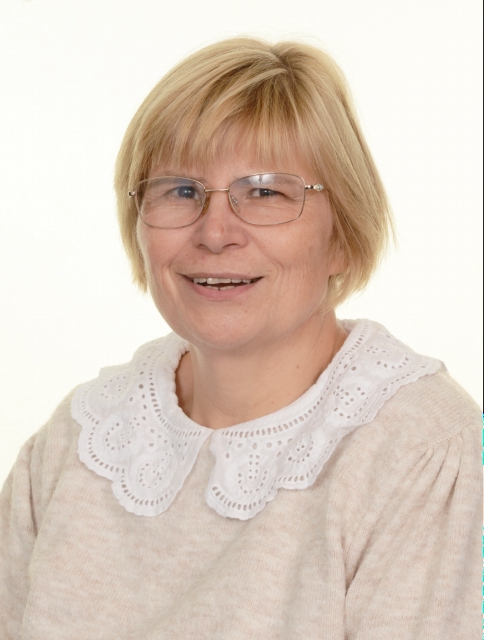
Mrs Wessels
Mental Health Lead

Mrs Campbell
Wellbeing Lead

Miss Chappell
Safeguarding Curriculum Lead

Mrs Bartlett
PSHE Lead
Parents / Carers who have any concerns about their child’s emotional health and wellbeing should initially contact their child’s class teacher.
If that is not possible or you need to source help for yourself or your family, please contact Mrs Wessels Email: [email protected]
Click here to find out about a wealth of organisations, services and websites to assist you with mental health.
Click here to find useful links and phone numbers for help with domestic abuse.
Links by Topic
Below are useful links with a wealth of information regarding the following mental Health Topics.
Wellbeing
- Mind – This is a charity which offers advice and support, especially around the ‘5 ways to wellbeing.’ https://www.mind.org.uk/workplace/mental-health-at-work/taking-care-of-yourself/five-ways-to-wellbeing/ For Parents
- YoungMinds – This website offers advice for you to help your children and a free telephone service. Call the Parents Helpline: 0808 802 5544 (Monday to Friday 9.30am – 4pm, free for mobiles and landlines). https://youngminds.org.uk/resources/ For parents to help children
- Anna Freud – A Mental Health Charity providing high quality mental health resources: advice and guidance for parents and carers in conflict and separating, self-care, tips for shared decision making and podcasts about a range of child centred-subjects, https://www.annafreud.org/parents-and-carers/ For parents to help their children as well as help for parents when feeling overwhelmed
- Public Health England and the NHS – Offers advice on how to take simple steps to look after your mental health, improve their mental wellbeing and support others. https://www.nhs.uk/oneyou/every-mind-matters/ For Parents
- Resilience – https://www.heysigmund.com/building-resilience-children/ For parents to help children
- Every mind matters (NHS website dedicated to mental health and wellbeing) https://www.nhs.uk/every-mind-matters/supporting-others/childrens-mental-health/ For parents to help children
Calming Activities, Mindfulness, Breathing, Yoga Videos and More…
- Childline Calm-Zone. https://www.childline.org.uk/toolbox/calm-zone For Children
- Cosmic Yoga – https://www.youtube.com/user/CosmicKidsYoga For Children
- An activity for grounding and calming. https://kristinamarcelli.wordpress.com/2015/07/14/hold-a-sense-of-inner-peace-with-you-wherever-you-go/ For Children + Parents
- Just Breathe – A video aimed at children to help them feel calmer. https://www.youtube.com/watch?v=RVA2N6tX2cg For Children
- 150 Sensory Learning Ideas. https://inclusiveteach.com/2020/03/20/150-sensory-learning-ideas For Children + Parents
- ‘100 positive things every kid needs to hear’. https://raising-independent-kids.com/100-positive-things-every-kid-needs-hear For Children + Parents

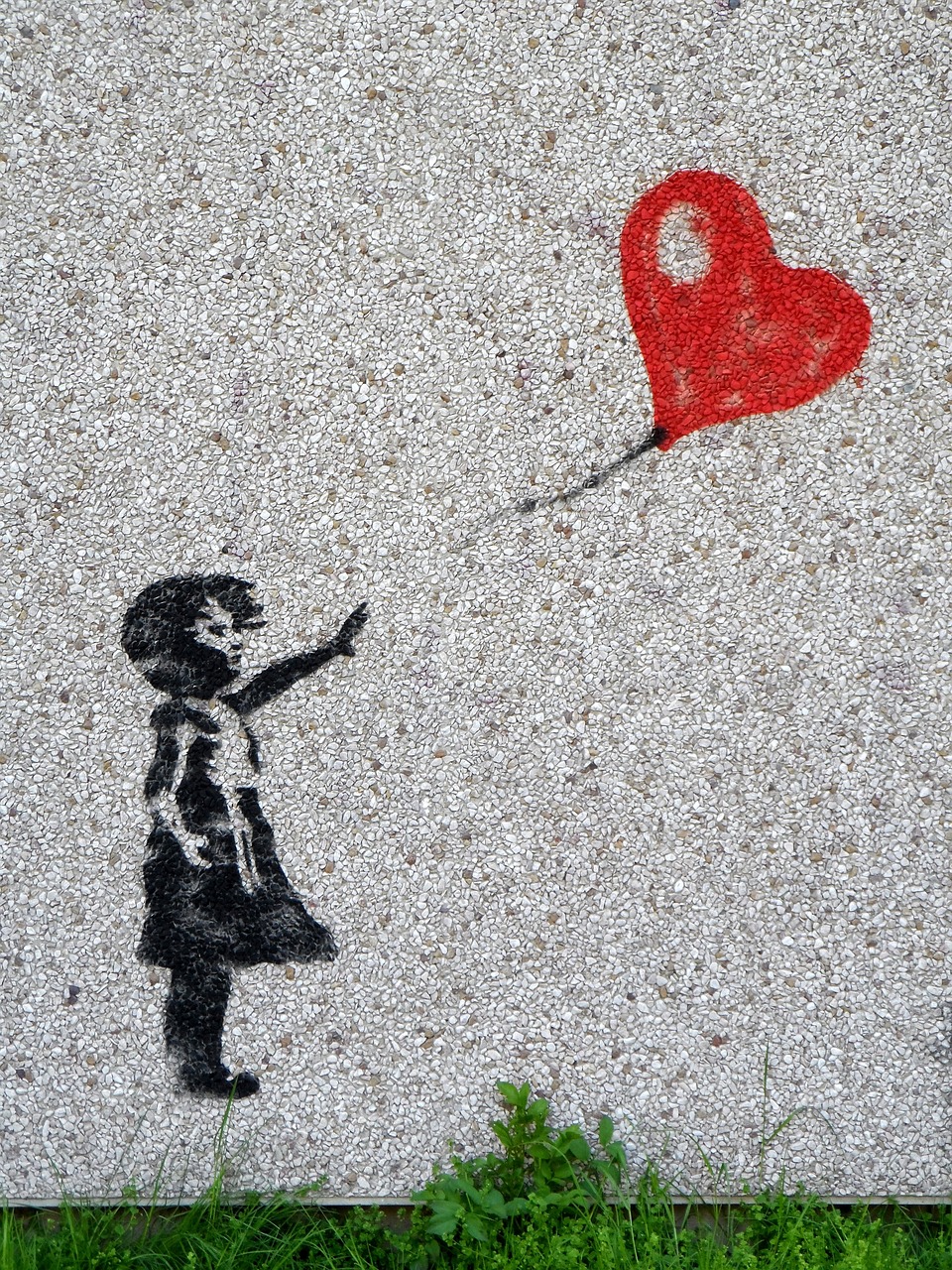
Depression, anxiety, suicidal thoughts or self-harm
- NSPCC – Recognising the signs that a child may be struggling with their mental health and wellbeing can be really hard. NSPCC have got advice to help you support your child who may be experiencing depression, anxiety, suicidal thoughts or self-harm. https://www.nspcc.org.uk/keeping-children-safe/childrens-mental-health/ For Parents to support children
- CAMHS – A really helpful website which includes, downloadable self-help activities, information guides and information regarding: anxiety, self-esteem, self-harm, sleeping, stress, anger and many more. https://www.camhs-resources.co.uk For Parents to support children
- The Samaritans – This charity offers confidential support for people with feelings of distress. https://www.samaritans.org/ For Parents
- Anxiety – https://www.youngminds.org.uk/young-person/mental-health-conditions/anxiety/#Wheretogethelp
Bereavement
- Winston’s Wish – The leading childhood bereavement charity in the UK, offering practical support and guidance to bereaved children and their families and professionals. https://www.winstonswish.org/ For Parents to support children
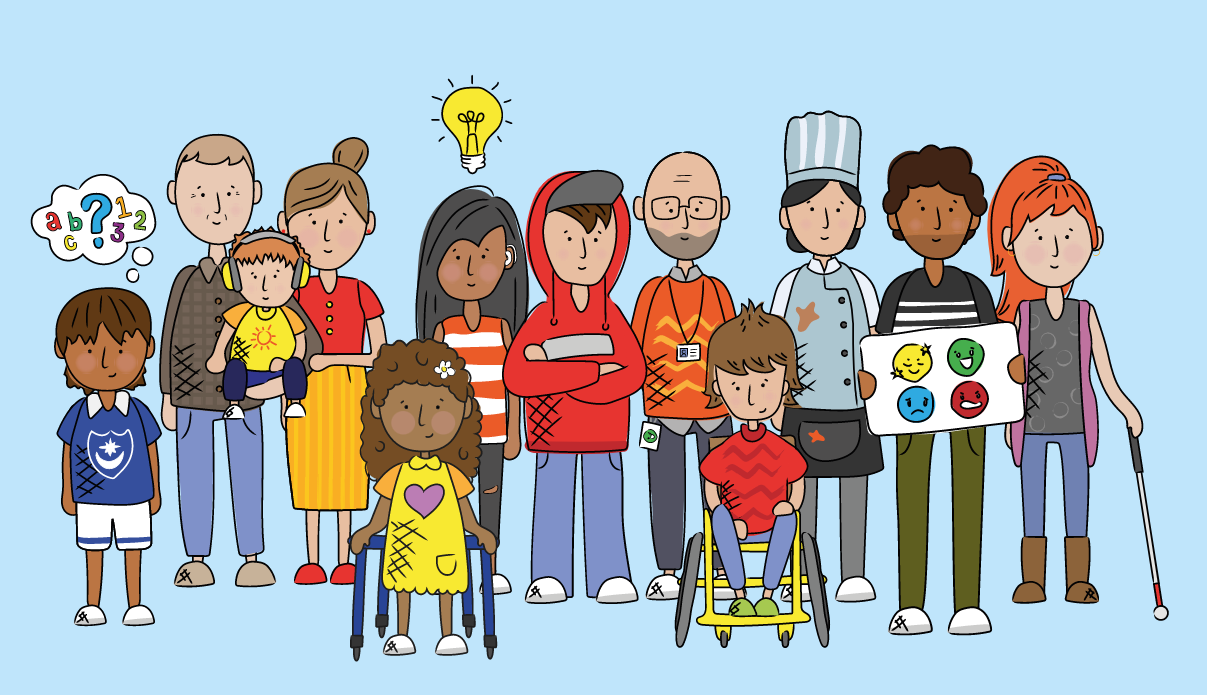
The Local Offer (Provided by Portsmouth City Council)
A range of resources regarding pupils with SEND for parents, pupils and professionals
https://portsmouthlocaloffer.org/ For Parents
Family Assist
Family Assist is an innovative new way of ensuring that parents and their friends and families have access to a wide range of information and resources, both local and national, at their fingertips.
https://solent-family-assist.custhelp.com For Parents

